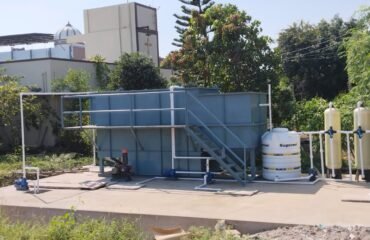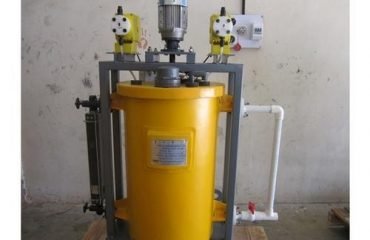In the bustling city of Patan, the management of wastewater is a critical concern for the authorities and industries alike. Wastewater, whether from domestic sources or industrial processes, contains pollutants that can harm the environment and public health if not properly treated. The key to managing this issue efficiently lies in selecting the right wastewater treatment plant. In this comprehensive guide, we explore the differences between Effluent Treatment Plants and Sewage Treatment Plants in Patan, helping you make an informed decision and ensuring the best possible wastewater treatment solution for your specific needs.
Understanding Effluent Treatment Plants
What is an Effluent Treatment Plant?
Effluent Treatment Plants, commonly known as ETP, are designed to treat industrial wastewater. They are highly effective in removing contaminants and pollutants from effluents generated by various industrial processes. These plants play a crucial role in ensuring that the wastewater discharged by industries complies with environmental regulations and poses no harm to the ecosystem.
Key Features of Effluent Treatment Plants
- Advanced Treatment Processes: Effluent Treatment Plants employ advanced treatment methods such as chemical coagulation, flocculation, and biological treatment to purify industrial effluents.
- Customizable Design: Effluent Treatment Plants can be tailored to meet the specific requirements of different industries, making them a versatile choice for wastewater treatment.
- Cost-Effective Solutions: While Effluent Treatment Plants can be a substantial initial investment, they often prove cost-effective in the long run by reducing environmental compliance costs and ensuring smooth industrial operations.
- Environmental Compliance: Effluent Treatment Plants are essential for businesses that need to meet stringent environmental regulations and discharge clean, treated water into the environment.
Sewage Treatment Plants in Patan
What is a Sewage Treatment Plant?
Sewage Treatment Plants focus on treating domestic and municipal wastewater. Unlike ETPs, which deal with industrial effluents, Sewage Treatment Plants are responsible for the treatment of sewage and other wastewater from homes, commercial buildings, and public facilities.
Key Features of Sewage Treatment Plants
- Biological Treatment: Sewage Treatment Plants primarily employ biological processes to break down and remove contaminants from domestic wastewater. This includes processes such as aeration and sludge digestion.
- Public Health and Sanitation: Sewage Treatment Plants are crucial for maintaining public health and hygiene by treating wastewater generated by households and businesses.
- Community Welfare: The proper functioning of Sewage Treatment Plants contributes to the overall well-being of the community by preventing the contamination of water bodies and the spread of waterborne diseases.
- Regulatory Compliance: Sewage Treatment Plants are essential for municipalities and organizations to comply with regulations regarding the treatment and disposal of sewage.
Choosing the Right Plant for Your Needs
Selecting the appropriate wastewater treatment plant for your specific needs in Patan is crucial. The decision should be based on several factors, including the nature of the wastewater, volume, and environmental regulations.
Factors to Consider
- Wastewater Source: Identify whether the wastewater is industrial effluent or domestic sewage. This is the most critical factor in determining the type of treatment plant needed.
- Volume of Wastewater: Consider the daily volume of wastewater that needs to be treated. Large industries might require more extensive treatment facilities than smaller businesses or households.
- Environmental Regulations: Ensure that you are in compliance with local and national environmental regulations. Different plants may have varying levels of treatment required to meet these standards.
- Budget Constraints: Evaluate your budget and the long-term cost-effectiveness of each option. Effluent Treatment Plants tend to have a higher upfront cost, while Sewage Treatment Plants are more budget-friendly for domestic wastewater treatment.
- Space Availability: Depending on the available space, you might need to choose a plant with a design that fits your location.
Conclusion
In Patan, efficient wastewater management is essential for the well-being of the community and the protection of the environment. Selecting the right wastewater treatment plant, whether it’s an Effluent Treatment Plant or a Sewage Treatment Plant, depends on the nature of the wastewater, volume, and compliance requirements. Both Effluent Treatment Plants and Sewage Treatment Plants play a vital role in preserving the environment and public health, each with its own set of advantages and applications.




